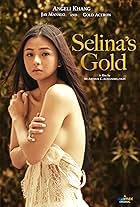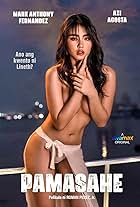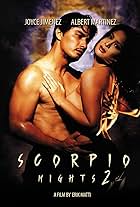Before anything else, it should be made clear that this review was made comparing the film to the original text which it was based on.
The Summer Solstice, a short narrative by Nick Joaquin is genius and powerful, clearly a timeless masterpiece inspired by the greatest of muses. But sad to say, the film adaptation of the short story entitled, Tatarin is seriously lacking in depth and quality which makes it easily forgettable. From unforgettable to forgettable. This was how much the film adaptation ruined the narrative. Nick Joaquin's story was effective in portraying a eulogy to a man-driven, pseudo-American Philippine society, while its film adaptation directed by Amable Aguiliz was confusing. Despite being backed by Viva Films, one of the major production machines to ever grace Philippine cinema, the film still succeeds to end up a miserable undertaking, light years away from being a timeless classic that Nick Joaquin's story is.
Tatarin was an entry to the 2001 Metro Manila Film Festival but to my knowledge it failed to bag a major award in the event. And rightfully so. For starters, the film was filled with a roster of newcomers to the silver screen, most of them were sexy stars. I have nothing against neophyte actors, actresses or sexy stars but putting them in a material possessing enormous potential was not a very good idea as proved by the finished product. Much of the film's lackluster acting should be attributed to them. I think the producers and the director should have chosen from a pool of seasoned actors and actresses in the country. But then again, choosing an actor also depends on the roles available. The scriptwriters and the director added and modified some characters from the original text which made it difficult to cast veterans. One such example can be seen in the Moretas' house aids. In the original text, Amada was not a young vixen that Rica Paralejo is.
Then again, the director and his crew always have the freedom to modify the original narrative whenever they deem it necessary. It is only an adaptation after all. Of course the next question would be: was the particular change necessary? This is where it gets tricky and contentious. This also serves as an argument supporting my comparison of the short story and its adaptation.
I really do not think that transforming Amada and the rest of the Moretas' house helpers into sexy, young, erection inspirations was done to better the original text. If someone watches the film without reading the text and sees the scene wherein Guido asks Lupeng about Amada, he or she would likely think that it is only natural for Guido or any man to be enchanted by Amada since she was portrayed by a woman in her mid-twenties with a voluptuous body. But credit should also be given to the fact that Amada was a Tadtarin that day. This is what I mean when I say that the film adaptation was confusing.
On the other hand, Amada as written in The Summer Solstice was stout and elderly. Thus when Guido asks Lupeng about her it was clearer that her enthralling appeal was because she was a Tadtarin. Why then was Amada modified for the adaptation? An endless number of answers or opinions might surface but I feel that this has something to do with the cast of breast-baring sexy stars who comprise much of the Moretas' household.
The film was not made for art's sake. It was made to sell. And the moderate sexual content included in the film, enough to garner it a R-18 rating by the way, proves just how much it depends on sex to sell tickets.

























